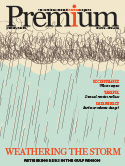Coal export ban: Policy risk remains
The credit impact of Indonesia’s temporary ban on coal exports for issuers is likely to be limited and the relaxing of restrictions suggests that the danger of an extended period of curbs is receding, Fitch Ratings has stated. Nonetheless, the potential remains for policy changes to have more substantial effects on Indonesian coal miners, and the temporary disruption of supplies may sour relations with key export markets.
The export ban was imposed for a month at the start of January amid low coal inventories at domestic power plants, which had fallen to around one to two days from a more normal level of around 20. However, the Coordinating Minister of Maritime and Investment Affairs, Luhut Pandjaitan, said on earlier that 14 vessels loaded with coal would be eligible to ship their product overseas. Fitch Ratings believes this signals that officials are more comfortable with coal inventory levels, and is likely to presage a gradual easing of the restrictions.
In relaxing the restrictions, Fitch Ratings expects the authorities to focus on levels of compliance with the Domestic Market Obligation (DMO) that requires miners to supply 25 percent of their product locally, at capped prices. Most Fitch-rated miners complied with the DMO in 2021.
Miners have a degree of operational flexibility, and even those that face inventory constraints limiting their capacity to store coal mined during the export ban should still be able to meet annual production targets. Some miners may face claims over export contracts that were not fulfilled in a timely fashion because of the restrictions, but they should have the option to declare force majeure in such cases.
There is a risk that overseas demand for Indonesian coal could be adversely affected if customers in export markets, such as Japan and Korea, divert their orders following the supply interruption. If exports are subject to further disruption the risk might increase. Nevertheless, the fungibility of global coal markets suggests alternative customers can be found, albeit at potentially less profitable prices.
Another danger is that the government could opt to revise the DMO. Policy changes that further prioritise domestic markets over external ones could have an adverse impact on cashflows for Indonesian miners, but the overall credit impact would depend on the nature of the adjustment and individual company responses.





































